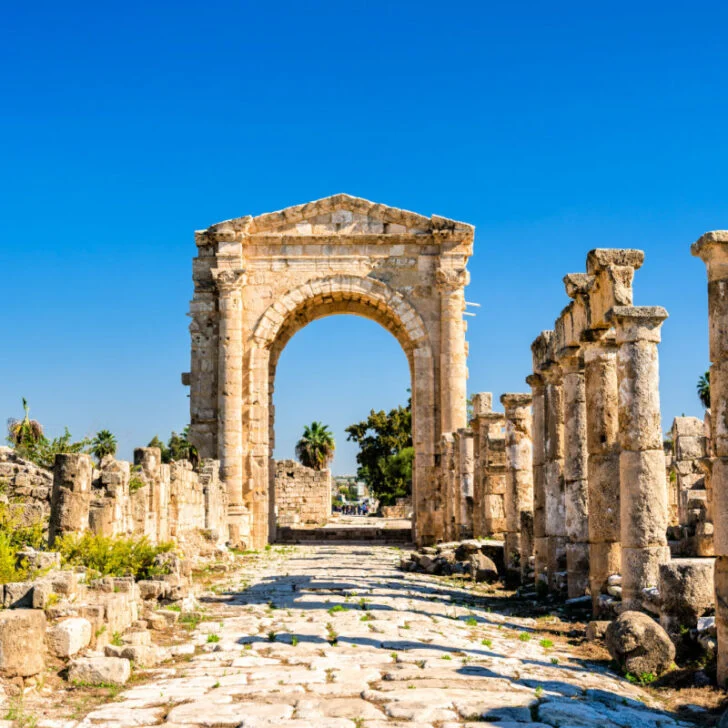The recent violence in Israel and Gaza has been headline news around the world.
This means that many Americans have canceled their travel plans to Israel. But this conflict has had knock-on effects on other countries in the region too.
As a result, the U.S. State Department has issued a Level 4: Do Not Travel advisory for this historic destination:
Level 4: Do Not Travel
The U.S. State Department is advising that American citizens do not travel to Lebanon right now.
This is due to the “unpredictable security situation related to rocket, missile, and artillery exchanges between Israel and Hezballah or other armed militant factions.

Reconsider travel to Lebanon due to terrorism, civil unrest, armed conflict, crime, kidnapping and Embassy Beirut’s limited capacity to provide support to U.S. citizens.”
Lebanon is a beautiful country that has a long and rich history of cultural tourism.
Located on the eastern Mediterranean coast, Lebanon boasts a beautiful variety of landscapes — from the deserts you would expect in the Middle East to verdant woodlands, white sand beaches, and snow-topped mountains.

History buffs love Lebanon because it was inhabited or influenced by the Persians, Greeks, Egyptians, Romans, Ottomans, and the French.
Each civilization made its mark and left an abundance of architectural remains to explore.
But right now Lebanon simply isn’t safe to visit.

Travelers are advised not to travel to the border with Syria, the border with Israel, or the refugee settlements in the country for the following reasons:
- The Border With Syria. Deadly terror attacks in border towns along Lebanon’s border with Syria are a regular occurrence.
U.S. citizens are advised to avoid this region and to avoid traveling on any flights that fly over Syria. This includes some flights to and from Beirut.
- The Border With Israel. This region has experienced rocket, missile, and artillery exchanges between Israel and Hizballah or other armed militant factions.
This border area should be avoided particularly given the ongoing conflict between Israel and Hamas.
- Refugee Settlements. Some of these have experienced outbreaks of violence and armed clashes, including with heavy weaponry.
This is why U.S. citizens are urged to avoid all of these areas.
Traveling To Lebanon
If you choose to ignore this advice and travel to Lebanon anyway, then visitors need to be aware that the consular officers from the U.S. Embassy may not be able to travel to assist them.

Kidnappings are common in Lebanon. These could be because of ransom, political motives, or family disputes.
But at this point the main risk of traveling to Lebanon is being caught in the crossfire of unrest.
The conflict in Israel and Gaza has only made the situation more uncertain and more dangerous for travelers.

If you are traveling to Lebanon, then the U.S State Department offers the following advice:
- Avoid demonstrations and crowds.
- Stay alert in locations frequented by Westerners.
- Monitor local media for breaking events and adjust your plans if new information emerges.
- Follow the Department of State on social media to keep up to date with new alerts.
- If you do choose to travel to Lebanon against government advice, then have a contingency plan for what you will do if an emergency situation arises during your trip.
A level 4 advisory level is issued when there is a greater likelihood of life-threatening risks. During an emergency, a level 4 advisory warning will be issued as the U.S. government has very limited ability to provide assistance.
U.S. citizens are advised not to travel to Lebanon (or any other country with a level 4 travel advisory) and to leave the country as soon as it is safe to do so.
Credit: Source link


